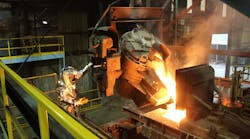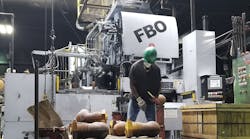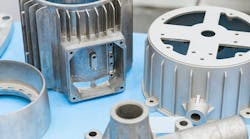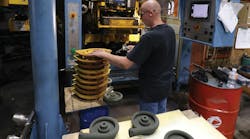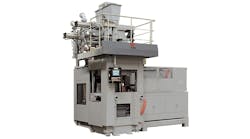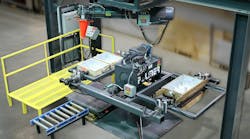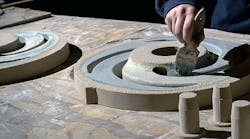Shiloh Industries Inc. — which produces aluminum and magnesium diecastings, among various other parts for automotive bodies, powertrains, structural and seating components — is among the new recipients of research grants from the U.S. Department of Energy’s the High Performance Computing for Manufacturing (HPC4Mfg) program.
The specific research project, titled "Development of a Transformational Micro-Cooling Technology for High-Pressure Die Casting using High-Performance Computing," will see
Shiloh work with DOE’s Oak Ridge National Laboratory to develop accurate models that detail boiling in casting cooling channels. "The ability to model critical variables such as uniform temperature distribution, various mechanical properties and heat transfer related defects will have a major impact on energy management and efficiency," according to a Shiloh statement.
The value of the DOE grant and the schedule for the Shiloh research project were not announced.
Shiloh operates multiple manufacturing operations in the U.S., Europe, and Asia, producing automotive components ranging from stampings and welded blanks to aluminum and magnesium diecastings, and precision machined parts.
The HPC4Mfg program was established in March 2015 to create "an ecosystem" in which experts at DOE labs work directly with manufacturers, to show them how to adopt or advance their use of high performance computing to resolve manufacturing challenges, toward greater energy efficiency, reduced environmental impacts, and more advanced clean energy technologies.
"High-performance computing" (HPC) is the use of parallel processing to run advanced application programs, reliably — meaning systems that function above 1012 floating-point operations per second (also known as a “teraflop” of calculations.)
"By incorporating high performance computing into our analytical processes we will be able to accurately model large sections of the cooling channels,” according to Shiloh’s Alex Reikher, a technical fellow in research and development. “The data will be used in our tool simulations to create dies that will operate with lower energy costs and shorter cycles, reducing waste and rejected parts."
Among several other new HPC4Mfg research grants issued by DOE include one to Rolls-Royce Corporation of Indiana, aiming to improve silicon-carbide composite manufacturing; and one to General Motors LLC and EPRI to improve welding techniques for automobile manufacturing and power plant construction.
